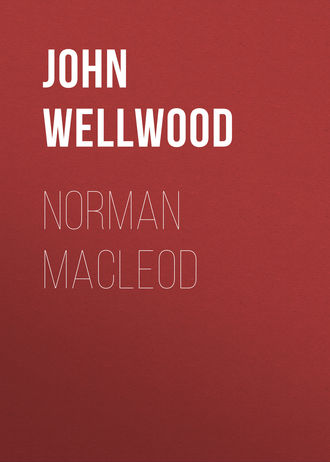 полная версия
полная версияNorman Macleod
In 1871, having an acute attack of gout, he was ordered by Sir William Jenner to take the waters at Ems. Towards the end of the year he owned to himself, for the first time, that he was unequal to his tasks. The least thing exhausted him, he could not sleep. Early in the following spring he went to St. Andrews to address the students. ‘We were all struck,’ wrote his old friend Shairp, then Principal of the University, ‘by his worn and flaccid appearance.... After describing very clearly and calmly the state of the mission and its weakness for want of both fit men and sufficient funds, his last words were—“If by the time next General Assembly arrives neither of these are forthcoming, there is one who wishes he may find a grave!”’ A few weeks later his infirmities had so increased that he was compelled to give up the India Mission. One more effort to rouse the Church he was resolved to make, were it his last. When in the ensuing General Assembly he rose to speak, the House was crowded and as still as death; it was clear to all that the warrior of God would soon enter into rest. His utterance was so rapid as to beat the reporters, but the speech was said to be the finest he ever made. The most striking passage is one rounding off his argument that the Westminster Confession was not for India:—
‘Am I to be silent lest I should be whispered about, or suspected, or called “dangerous,” “broad,” “latitudinarian,” “atheistic”? So long as I have a good conscience towards God, and have His sun to shine on me, and can hear the birds singing, I can walk across the earth with a joyful and free heart. Let them call me “broad.” I desire to be broad as the charity of Almighty God, who maketh His sun to shine on the evil and the good: who hateth no man, and who loveth the poorest Hindoo more than all their committees or all their Churches. But while I long for that breadth of charity I desire to be narrow—narrow as God’s righteousness, which as a sharp sword can separate between eternal right and eternal wrong.’
On his birthday he wrote to Shairp: ‘As I feel time so rapidly passing, I take your hand, dear old friend, with a firmer grip.’ That day, by his express desire, his family were all gathered round him. As husband, father, brother, son, never man was more devoted. After two weeks of restlessness and want of sleep, suddenly the end came. About midday on the sixteenth of June, reclining on the sofa, he uttered a cry. As his wife sprang to his side, he sighed and passed away.
The news that Norman Macleod was dead sent a thrill through the nation. His funeral was the most imposing ever seen in Glasgow. At the services, which were held in the Barony Church and in the Cathedral, ministers of different denominations took part. There were between three and four thousand in the procession, including magistrates, sheriffs, and professors, all in their official robes, and two representatives of royalty. As far as to the outskirts of the city the route was thronged with spectators. An old woman, blinking in the brilliant weather, was overheard saying to herself, Eh, but Providence has been kind to Norman, gi’en’ him sic a grand day for his funeral! He was buried beside his father in Campsie. There are monuments: a tablet at Loudoun; a statue near the site of the old Barony Church; and two stained windows at Crathie, the gift of Her Majesty the Queen.
1
See More Leaves from the Journal of Our Life in the Highlands.
2
From A Peep at Russia.
3
From The Old Lieutenant and his Son.
4
Other names have been associated with this anecdote, but Norman for my money.
5
From The Old Lieutenant.
6
Cf. Tennyson’s line, so much praised by Mr. Swinburne—
‘And stormy crests that smoke against the sky.’
7
Cf. Professor Max Müller: ‘From what I know of the Hindoos, they seem to me riper for Christianity than any nation that ever accepted the gospel. It does not follow that the Christianity of India will be the Christianity of England; but that the new religion of India will embrace all the essential elements of Christianity I have no doubt, and that is surely something worth fighting for.’ (Letter to Norman Macleod in Memoir, vol. ii. p. 257.)
TRANSCRIBER’S NOTES:
–Obvious print and punctuation errors were corrected.
–The nice title page has been retained as an illustration.

